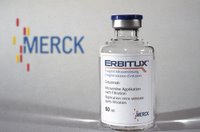 From the AP, a good story about the costly, high-tech armamentorium of drugs and devices that offer the promise of extending life-spans once deemed to be "terminal," but at a price that's so high, some patients simply opt out:
From the AP, a good story about the costly, high-tech armamentorium of drugs and devices that offer the promise of extending life-spans once deemed to be "terminal," but at a price that's so high, some patients simply opt out:More patients are confronting this wrenching decision, as the latest generation of pricier cancer drugs and heart implants stretches out the final months of advanced disease. Is the chance for several more months of life - maybe a year or more with luck - precious enough to spend a small fortune? This dilemma is also challenging governments, employers and insurers, who all help finance America's longer life spans and innovative technologies.
Extraordinary care for dying patients can make for inspiring medicine, but its extraordinary costs make it an increasingly debated choice to promote public health. Many economists, doctors, and ethicists say this care too often buys too little for too much - and that its expanding share of medical resources might better pay for screening and treating diseases in earlier stages.
Already, up to 30 percent of annual payments by federal Medicare insurance go to the 5 percent of members in their last year of life, research shows.
"People still have an underlying belief that there's an infinite amount of resources that can be invested in health care," says Dr. Harlan Krumholz, a Yale University heart specialist who studies quality of care. "But I think we're coming to a realization that we're going to need to confront these issues explicitly."
Maybe so, but any retreat from last-resort care still raises objections from many patients, doctors and medical companies. They denounce "rationing" of care and defend expensive treatments for the dying as a moral imperative.
No comments:
Post a Comment